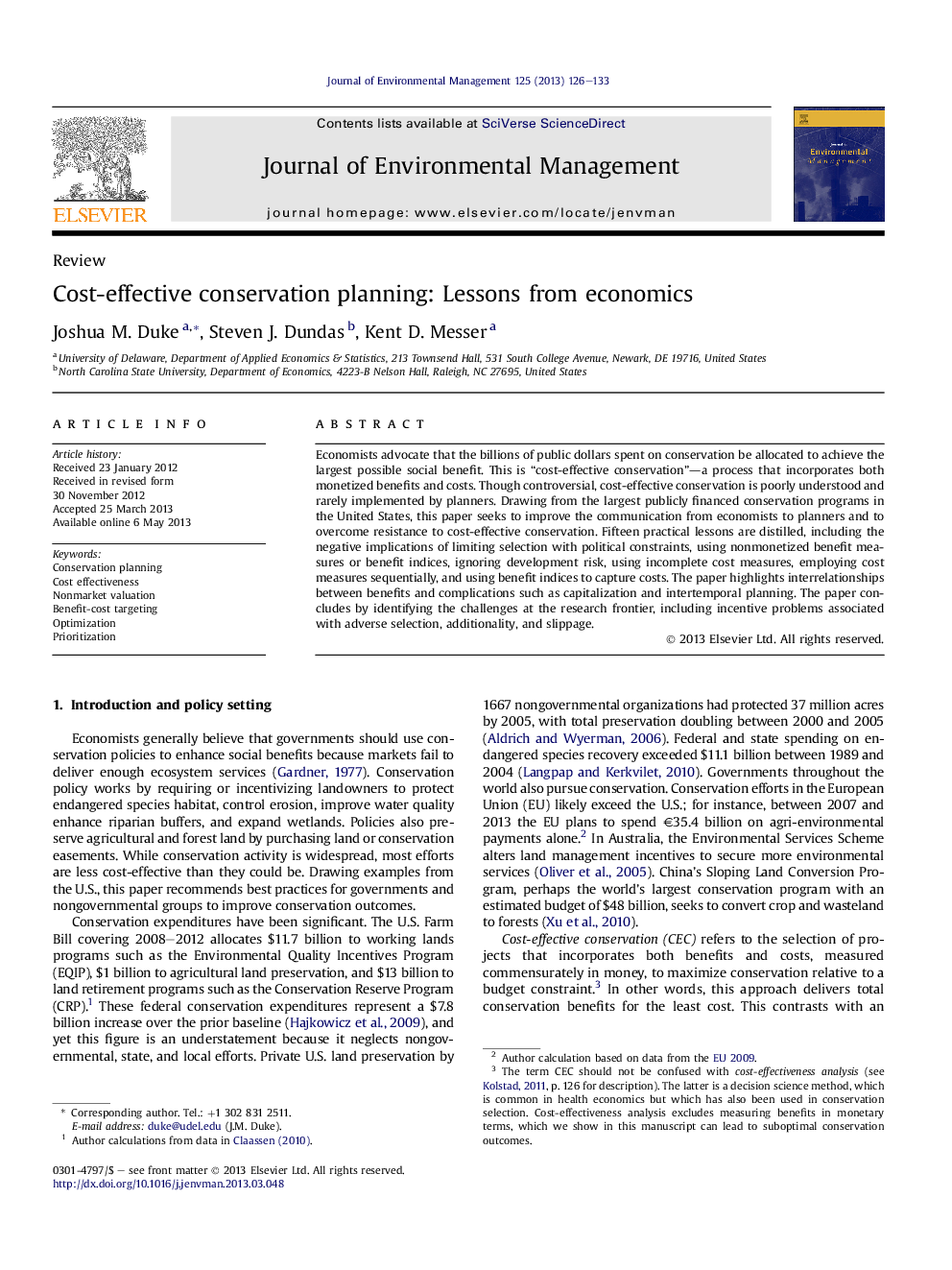| کد مقاله | کد نشریه | سال انتشار | مقاله انگلیسی | نسخه تمام متن |
|---|---|---|---|---|
| 1055894 | 1485287 | 2013 | 8 صفحه PDF | دانلود رایگان |

• Conservation funds should maximize net benefits.
• This paper offers a broad synthesis of benefits and challenges to cost-effective conservation.
• This paper provides fifteen lessons synthesizing economic research related to conservation.
• Practical guidance is provided to assist planners and policymakers.
Economists advocate that the billions of public dollars spent on conservation be allocated to achieve the largest possible social benefit. This is “cost-effective conservation”—a process that incorporates both monetized benefits and costs. Though controversial, cost-effective conservation is poorly understood and rarely implemented by planners. Drawing from the largest publicly financed conservation programs in the United States, this paper seeks to improve the communication from economists to planners and to overcome resistance to cost-effective conservation. Fifteen practical lessons are distilled, including the negative implications of limiting selection with political constraints, using nonmonetized benefit measures or benefit indices, ignoring development risk, using incomplete cost measures, employing cost measures sequentially, and using benefit indices to capture costs. The paper highlights interrelationships between benefits and complications such as capitalization and intertemporal planning. The paper concludes by identifying the challenges at the research frontier, including incentive problems associated with adverse selection, additionality, and slippage.
Journal: Journal of Environmental Management - Volume 125, 15 August 2013, Pages 126–133